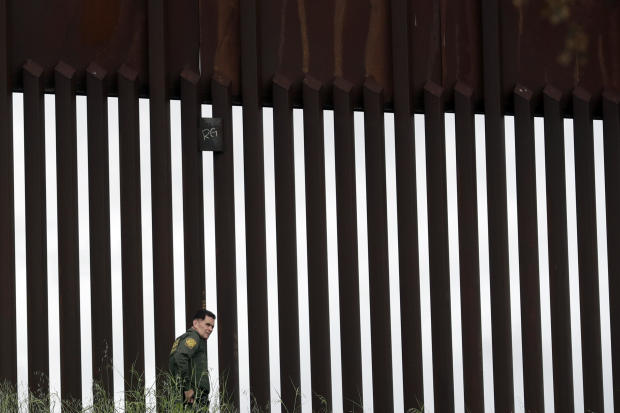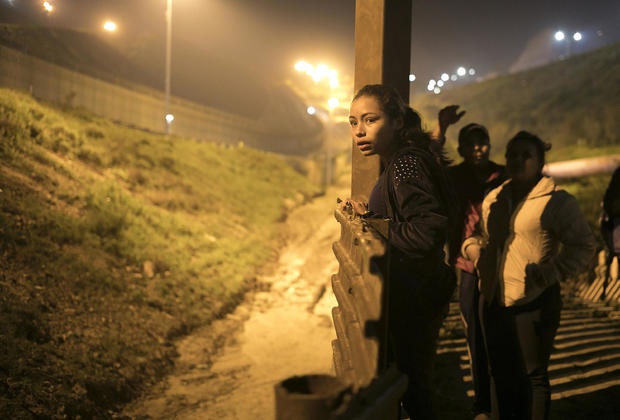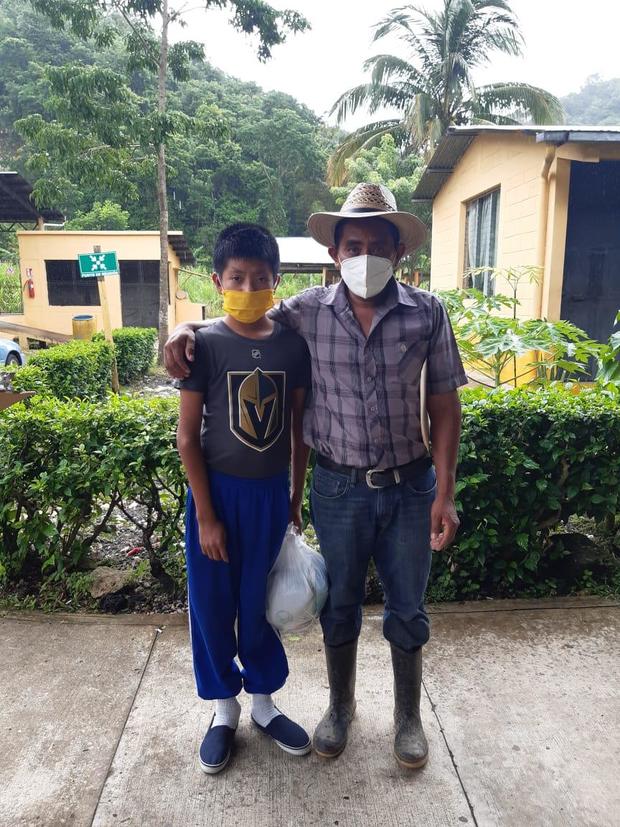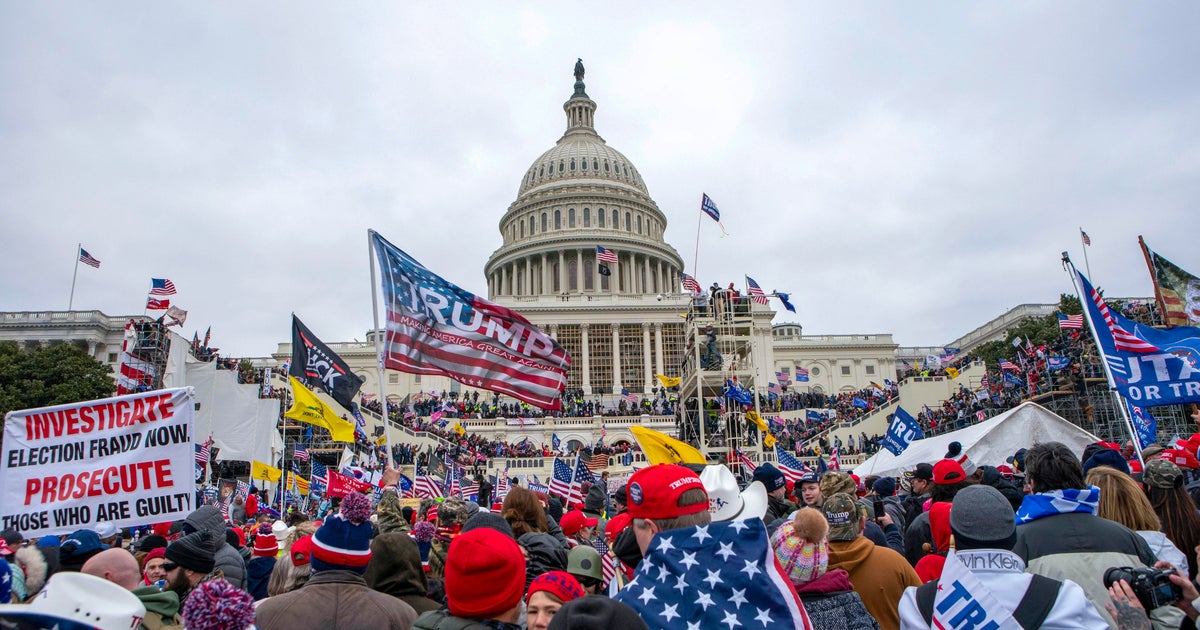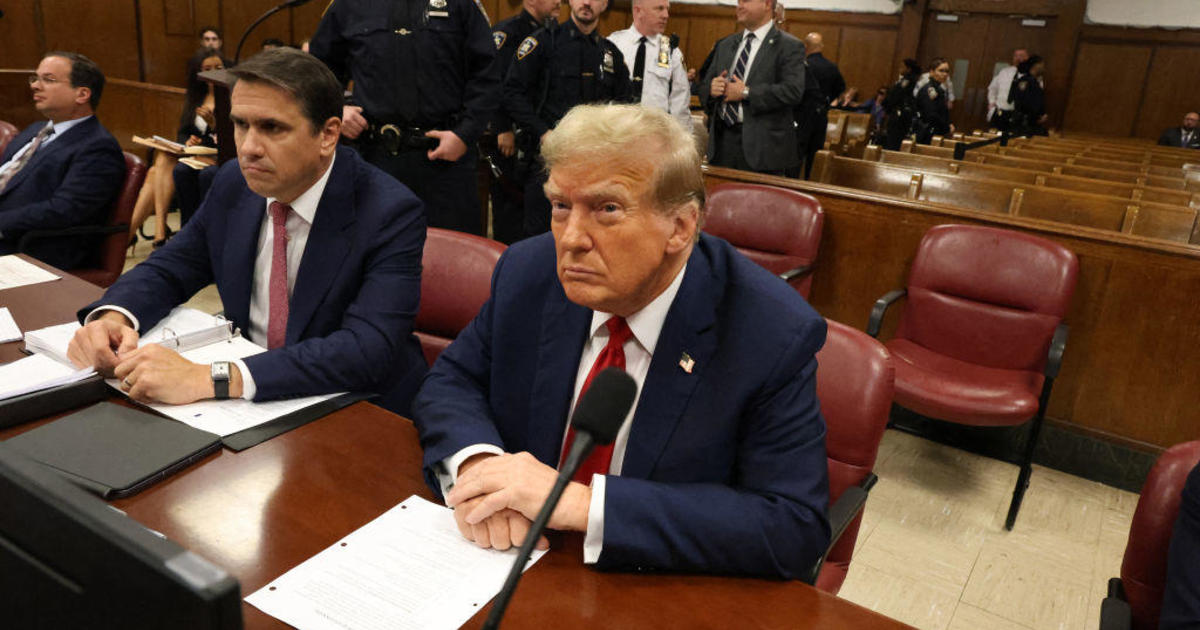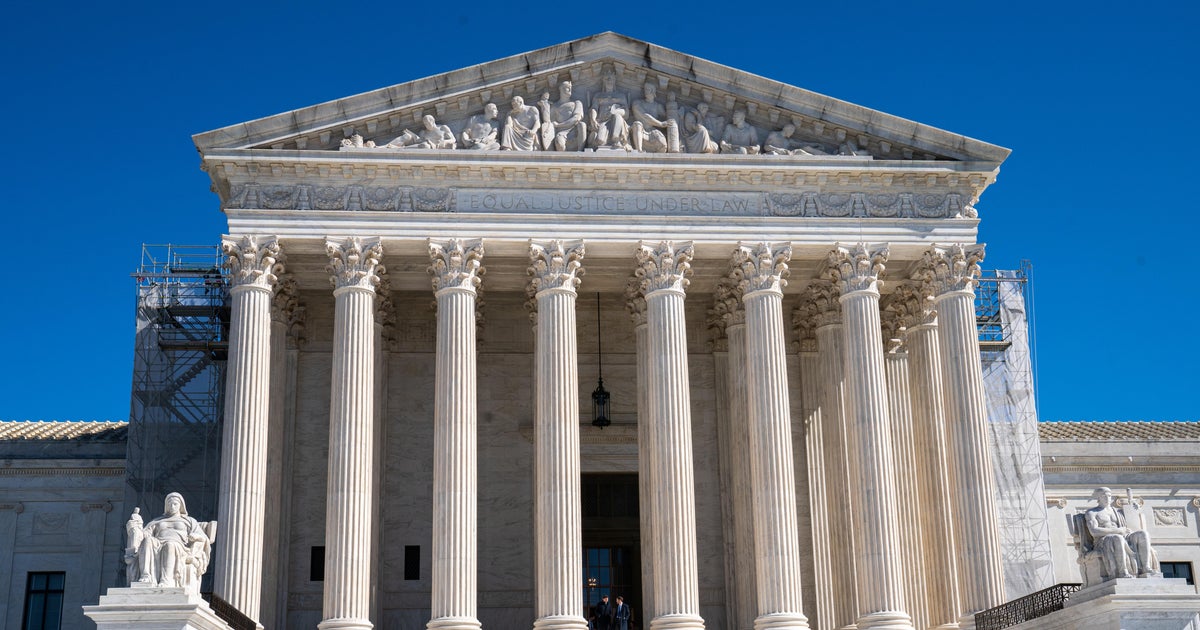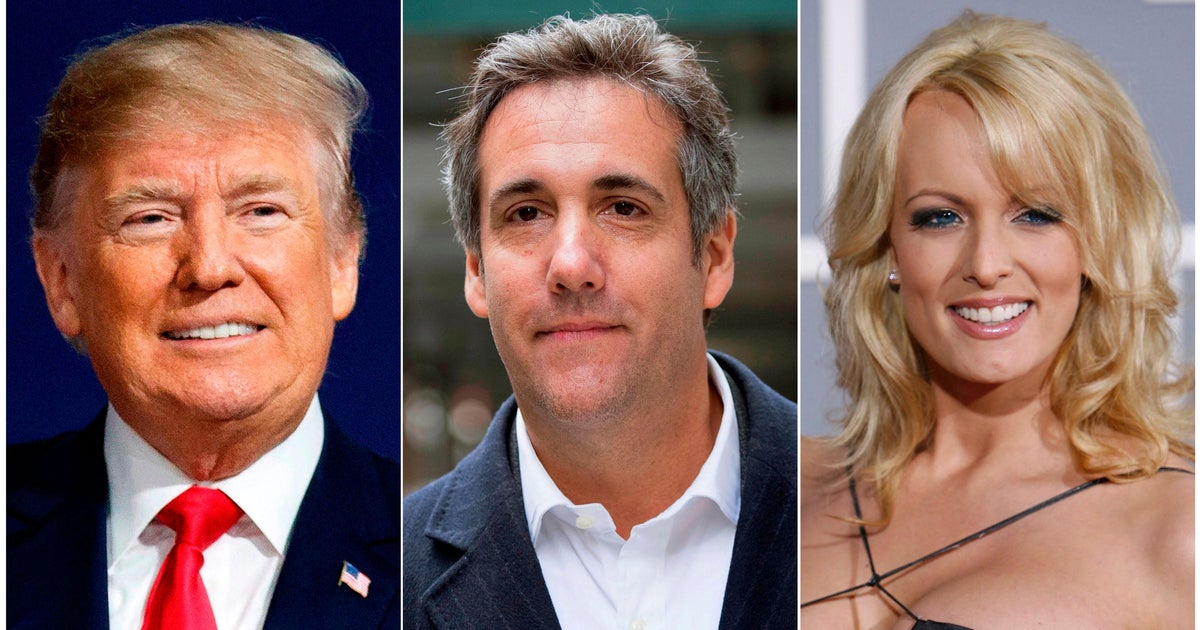How Trump officials used COVID-19 to shut U.S. borders to migrant children
Salvadoran sisters Noeli, 15, and Valeria, 12, hoped to start an immigration case and reunite with their mother in Maryland after five years apart when they crossed the U.S.-Mexico border in August with their brother, Josue, 23. But U.S. border agents quickly turned them back to Mexico.
Grabriela, 13, hoped to apply for asylum when she reached the Texas border in April, just as her mother had done years earlier when she fled gangs in El Salvador. But after being apprehended by U.S. officials, the girl was detained in a hotel and then placed on a deportation flight.
After waiting months in Mexico's violence-plagued Ciudad Juárez for her U.S. court hearing, Elida allowed her 12-year-old son Gustavo to present himself to U.S. border officials, thinking he would be allowed to reunite with his grandfather in South Carolina. Instead, Gustavo, a largely non-verbal boy with physical and learning disabilities, was expelled to Guatemala alone.
Prior to mid-March, these migrant children would have been housed in shelters and allowed to seek asylum or other forms of U.S. sanctuary with the help of lawyers. But their rapid expulsions from the U.S. are part of the Trump administration's unprecedented efforts to use the COVID-19 pandemic as justification to sidestep legal protections for minors who arrive at America's borders without documents.
By designating them public health threats who could spread the virus, the Trump administration has expelled at least 8,800 unaccompanied migrant children, some as young as 10, without a court hearing or asylum screening, circumventing safeguards Congress created to shield them from trafficking, exploitation and persecution.
In all, more than 204,000 of these expulsions have been carried out across the U.S.-Mexico border since March, according to government data.
President Trump's top immigration enforcement officials have portrayed the emergency policy as strictly based on public health and greenlighted by orders from the Centers for Disease Control and Prevention (CDC).
However, the White House and senior advisor Stephen Miller aggressively pressured the CDC to implement the order, bypassing objections from experts at the agency who believed there was no public health basis to invoke a 1940s law to shutter U.S. borders to migrants, including asylum-seekers and children, three former Trump administration officials familiar with the discussions told CBS News. The officials were granted anonymity in order to speak frankly about internal deliberations.
"We were forced to do it," one former official who worked on public health told CBS News. "We exhausted all of the options. We delayed. We slow-rolled. We flat out said there's not a public health justification. We said no. And then we were told, 'Do it.' So, at the end of the day, your options are to resign in protest or sign it. And if you resign in protest, the next person is just going to do it anyways."
According to two of the former officials, career experts at the CDC's Division of Global Migration and Quarantine — which would have jurisdiction over border measures to contain the virus — refused to be involved in the expulsions order. Instead, these former officials said, the order was drafted by Department of Health and Human Services (HHS) lawyer Brian Stimson, a political appointee. An HHS spokesperson said "career and political attorneys" who serve as lawyers for the CDC were involved because the order was a "public health and legal matter."
After mounting White House pressure, including a call from Vice President Mike Pence, CDC Director Robert Redfield signed the directive, which took effect on March 20. Katie Miller, a spokeswoman for Pence who is married to Miller, denied that the vice president "directed the CDC on this issue."
"It was one of many tough choices that we were forced to make, and ultimately the White House and their preference prevailed," a second former public health official told CBS News. "Public health authority had never been used in this way. A lot of folks, myself included, felt that this was a misappropriation of that authority."
CDC officials initially were able to "pare down" the order so that it would have to be reauthorized every 30 days. In May, after two renewals, the order was extended indefinitely. A subsequent order issued last month will be in place until the CDC director determines "the danger of further introduction of COVID-19 into the United States has ceased to be a serious danger."
"I guarantee you, under this administration, it will never happen," one of the former public health officials said. "It will take a new administration, a new director to come in and say, 'This is BS, I'm pulling it.'"
For the first time, Joe Biden's campaign on Sunday said the former vice president would order a review of the policy if elected. "A Biden Administration would direct the CDC and DHS to review this policy and make the appropriate changes to ensure that people have the ability to submit their asylum claims while ensuring that we are taking the appropriate COVID-19 safety precautions, as guided by the science and public health experts," campaign spokesperson Pili Tobar told CBS News.
The Associated Press and The Wall Street Journal have also reported on the White House's campaign to overrule CDC officials who opposed the border expulsions order.
On March 27, seven days after the CDC order took effect, Chad Mizelle, the top lawyer at the Department of Homeland Security (DHS), sent a memo to Ken Cuccinelli, the second-in-command at the department, proposing to further restrict asylum eligibility based on the pandemic, according to documents obtained by the group Human Rights First under the Freedom of Information Act.
In a statement provided by the White House, Redfield said "data pointed to a public health risk from COVID-19 to the illegal immigrants and the CPB employees at the border" when the expulsions policy was being discussed. "I determined it was in the public health interest, at that time, to issue the order and it was a decision I made as CDC Director," Redfield added. "CDC continues to evaluate the situation on the border and our future decisions will also be led by the science and data at the border locations."
A White House spokesman said the policy has "saved countless American lives by protecting border states, including Texas and Arizona, from having their hospitals overwhelmed and border patrol agents from infection." Customs and Border Protection (CBP) also defended it.
"The Centers for Disease Control and Prevention determined that the introduction and spread of COVID-19 in CBP stations and temporary holding facilities presents a danger to illegal border crossers, our frontline agents and officers, doctors and nurses, and the American public," the agency said in a statement to CBS News. "It would take just a small number of individuals with COVID-19 to infect a large number of detainees and CBP personnel and potentially overwhelm local healthcare systems along the border."
Asked during an interview with CBS News in September why U.S. immigration officials couldn't exclude unaccompanied children from the expulsions policy, Cuccinelli said, "You don't gain the benefit of a public health order by filling it with exceptions."
"The rules are clear. The circumstances are extraordinary due to COVID, even in addition to the fact that people are traveling illegally," Cuccinelli said. "I don't know why anyone would expect anything other than quick removal from this country when they cross knowingly, illegally, no matter what their age."
"Patently unlawful"
Children who set foot on U.S. soil without authorization have long been afforded additional legal protections.
In 2008, President George W. Bush signed the bipartisan Trafficking Victims Protection Reauthorization Act, which requires all government agencies to quickly transfer non-Mexican unaccompanied migrant children to the Office of Refugee Resettlement and its network of shelters. Under that law, Mexican children can be transferred to Mexican authorities after being screened to ensure they are not victims of trafficking or persecution.
While in the custody of the refugee agency, which is a division of HHS, children are connected with lawyers and in certain cases, with child advocates. Unlike adults, they are protected from expedited deportations and can have their asylum requests adjudicated by officers trained to hear humanitarian protection claims, rather than before an immigration judge in an adversarial courtroom setting.
In addition to asylum, which is a humanitarian protection against persecution, migrant children can also be eligible to legalize their status in the U.S. through visas for neglected, abused or abandoned minors.
While migrant children face deportation proceedings, the government is mandated to continuously pursue their release from custody by placing them with sponsors, who are typically family members residing in the U.S. These protections are established in U.S. law and the landmark Flores court settlement.
The Trump administration has denounced this patchwork of legal safeguards, arguing the protections encourage children from poor and often violence-plagued areas of Central America to journey north with the help of smugglers. Through different policies, the administration has sought to dismantle it.
But officials had never suspended these protections — until now. Citing the pandemic, the Trump administration has argued that migrant children are not entitled to these safeguards, and that the laws that created them are effectively inoperative as long as the CDC's orders remain in place.
The administration has even stopped using the legal term "unaccompanied alien children" for underage migrants apprehended by border authorities without their parents and placed in expulsion proceedings. Officials have been calling them "single minors," a change designed to reduce "litigation liability risk," according to the CBP documents obtained by Human Rights First.
Two federal judges have questioned the legality of the expulsion policy, saying the government should be harmonizing public health laws with the legal safeguards Congress created for migrant children.
"The Trump administration's use of the public health laws to summarily expel children without hearings is patently unlawful, as the two judges who have looked at the issue have concluded," Lee Gelernt, the American Civil Liberties Union attorney challenging the expulsions edict in court, told CBS News.
Citing the CDC order, U.S. authorities have pushed 6,500 unaccompanied children back into Mexico. Hundreds of unaccompanied children and families were also held in border hotels by U.S. officials seeking to expel them via deportation flights until a federal judge banned the practice in September, citing in part the limited access to lawyers.
In recent weeks, border authorities have allowed more unaccompanied children to stay in the U.S. The Office of Refugee Resettlement took in 1,218 migrant minors in September, compared to the 39 it received in May. Its in-custody population has increased to nearly 2,000, after plummeting to 800 in the summer.
Attorneys believe the increased referrals to the U.S. refugee agency stem from their efforts to stop the expulsions of the children they are able to locate, as well as the court-mandated ban on hotel detention, which hinders DHS' ability to house minors waiting to be placed on deportation flights.
The U.S., however, continues to expel unaccompanied children. In October, Guatemala, the largest source of non-Mexican migration to the U.S. southern border, reported receiving 407 unaccompanied and underage deportees, compared to 230 in September and 254 in August. And apprehensions of unaccompanied minors at the U.S.-Mexico border have increased steadily since the spring, reaching nearly 4,000 in September.
Advocates fear the U.S. government will continue citing public health laws to expel them.
"The policies that the administration has adopted, which are supposedly meant to address COVID-19, are based on totally spurious justifications," Kennji Kizuka, a senior researcher at Human Rights First, told CBS News. "They have nothing to do with protecting public health and everything to do with blocking asylum-seekers and unaccompanied children from getting the protections that Congress created for them."
"We have no safety here"
After being turned back by U.S. border officials, Noeli, Valeria and Josue, the expelled Salvadoran siblings, were shuffled around Mexico by immigration authorities there, ultimately ending up in a government holding facility in the southern state of Veracruz.
Evelin, their mother in Maryland, said she frantically made all the calls she could and eventually reached a Salvadoran consular official in Veracruz who helped facilitate the release of her children. She had her daughters go back to the U.S. border, saying they were not going to be safe in El Salvador, where they don't have immediate family members to care for them. Evelin said her adult son, Josue, did not cross with them out of fear that it would lead to the siblings being expelled to Mexico again.
In a 2 a.m. phone call, Evelin said U.S. officials told her that her daughters were going to be expelled yet again — this time to El Salvador. But with the help of the Young Center for Immigrant Children's Rights and other U.S.-based advocates, the girls were instead transferred to the U.S. refugee agency. They spent a month in two Texas shelters before being released to Evelin on September 24.
"I was very emotional to see them again," Evelin told CBS News in Spanish. "That has been my fight, to see them again and to make sure nothing happened to them in El Salvador. I'm happy to have them here. They suffered a lot. How did they send them like that to Mexico? They suffered a lot there, during the trip, facing hunger."
Despite their experiences in Mexico, Evelin's girls are some of the lucky few. They are the migrant children found by an "underground railroad" network of immigration lawyers, human rights activists and child advocates who support humanitarian-centered border policies.
"Migrant children facing expulsion stand no chance of being allowed to stay in the U.S. without legal representation," Taylor Levy, an immigration attorney in El Paso, told CBS News. "I worked on the case of a teenage boy fleeing death threats following the murder of his live-in uncle; he was expelled mere hours before we reached out to the government after becoming aware of his case, without ever having the chance to seek asylum."
Gabriela, the 13-year-old girl expelled to El Salvador, is hiding from gangs, according to lawyers with the Texas Civil Rights Project who are in communication with her New York-based mother. The Texas non-profit filed a lawsuit in federal court in June to try to secure Gabriela's return to the U.S. but the case has stalled.
Meanwhile, Gustavo, the 12-year-old disabled boy, is back in Petén, one of the most poverty-stricken parts of Guatemala where local authorities are often unable or unwilling to stop violent crime.
Gustavo's parents were never notified by U.S. officials of their son's expulsion. They said they located him through a Facebook post and help from the Los Angeles-based Immigrant Defenders Law Center. "He didn't deserve this," Juan, Gustavo's father, told CBS News in Spanish.
Juan, a farmer, said he does not know how he will escape the vicious cycle of poverty that traps many poor Guatemalans. Now that Gustavo is back, Juan said he also fears for his son's safety, citing recent roadside killings of two family members.
"We have no safety here. The authorities don't do anything in our country," Juan said. "They kill over anything here. That's why we look for a safer country."
Hundreds of miles away, Elida cried when recounting her decision to let Gustavo cross the U.S. border while she remained in Ciudad Juárez, where she said he was almost kidnapped. She is waiting for her U.S. asylum hearing, which has been postponed indefinitely due to the pandemic.
"I don't know what I'm going to do," Elida said while sobbing. "I don't want to be here without my son."
